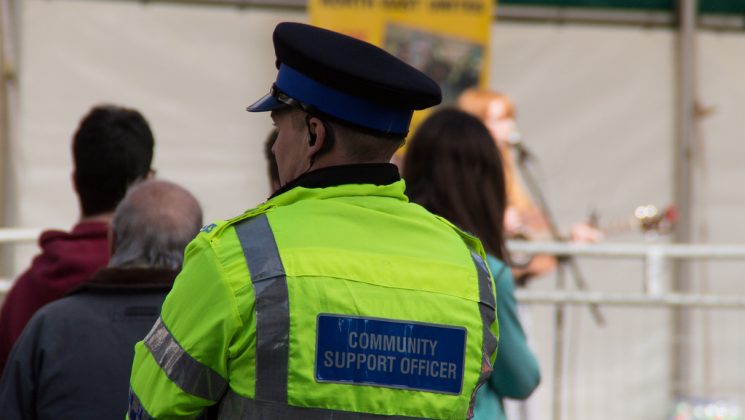Police officers don’t work alone. They’re the ones who make arrests, but the people who take the calls about the crimes, who direct them where to go to make arrests, who deal with the paperwork surrounding the arrests, who gather intelligence to make sure they’re arresting the right people, and a whole lot more, are police staff. They play a vital role in keeping our communities safe – ask any police officer and they’ll tell you, they can’t do their job without their police staff colleagues – but their numbers are shrinking.
UNISON represents over 30,000 police staff, and we know how integral they are to community safety. So, we’ve taken a close look at the data to see just what’s going on with them.
Twice a year the Home Office publishes statistics on the police workforce in England and Wales, and for the last five years the numbers have not been looking good.
You can see in the chart that the workforce is split between police officers, police community support officers (PCSOs), designated officers and all other staff. The last three groups are collectively known as police staff, and are also UNISON members.
PCSOs are the backbone of community policing, patrolling the streets and working with local residents and businesses to bring down crime and anti-social behaviour. They make up 75% of your local neighbourhood policing team, or at least they did before the government drastically cut their numbers.
Designated officers are specialist police staff with specific police powers such as scenes of crime officers, detention officers or investigative officers. ‘Police staff’ covers everyone else, such as 999 call takers, intelligence gatherers, and fingerprint experts.
As you can see in the chart, between September 2010 and September 2016, the numbers for all four types decreased. There has been a 13% cut in police officers, a 22% cut in police staff and a 36% cut in PCSOs.
Last year, UNISON produced a detailed report on the impact of cuts to police staff, called No time for community policing anymore. We asked our PCSO members to tell us about the impact of government cuts on neighbourhood policing, and the results were saddening.
One member said: “I no longer have any time to complete the core task of my duty, namely high visibility foot patrol, visiting vulnerable groups proactively and visiting victims of crime for follow-ups additional to the bare minimum.
“A large ‘neighbourhood policing’ element has been lost. I also have no support or time for the huge amount of intelligence gathering that came from this time spent in my community.”
In Scotland, the situation is slightly different. Between 1 April 2013 and 31 March 2017 around 2,000 police staff jobs have been lost. There has been no reduction in police officers because the government made a commitment to stick to 17,234 officers. A consultation called ‘Policing 2026’ is currently being carried out and will look at the ratio of police officers and police staff.
Ben Priestley, UNISON’s national officer for police and justice said: “Front line policing has suffered enormous cuts since 2010 – neighbourhood policing in particular. UNISON is very concerned that not enough attention is being given to the relationship between these cuts and the rise in violent and sexual crime since the end of 2013.”
For the year ending September 2016, the Office for National Statistics data on crime in England and Wales shows that there has been a 32% increase in public order offences, a 22% increase in violence against the person, a 22% increase in homicide, a 13% increase in rape, along with increases in other crimes.
Ben continued: “Whereas the government has been prepared to invest in order to bring down violent crime inside prison, this has not been the case in respect of rising crime outside prison.
“Law abiding citizens outside prison are entitled to ask why they do not qualify for similar protection? This is a safeguarding failure that requires immediate attention and action from the incoming government following the general election.”



